News
More postal service frustration, how evictions threaten the vote, Little Free Libraries in COVID, and more.
The U.S. postal service, brick-powered homes, Noah’s Ark, Indigenous self-determination, and more
Religious freedom, the Black freedom struggle, Mike Pence’s anti-abortion message, and more.
America’s addiction to whiteness, John Lewis, Trump’s election rhetoric, and more.
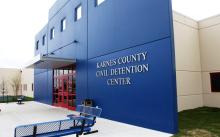
Earlier this month, a California judge ordered the release of more than 100 migrant children from Immigration and Customs Enforcement custody, but after ICE failed to meet specific prerequisites to release the children, the judge declared her order was “unenforceable,” leaving children in detention.

President Donald Trump still supports Anthony Tata, his pick for undersecretary of defense for policy, despite the abrupt cancellation of Thursday’s Senate confirmation hearing for the divisive nominee.
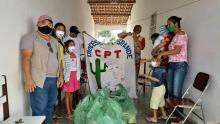
More than 200 land and environmental defenders were killed in 2019 according to the report released by Global Witness this week. Colombia topped the country rankings with 64 deaths, while Latin America continued its 8-year run as the worst-hit region, accounting for two-thirds of global deaths.
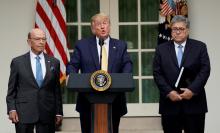
President Donald Trump signed a memorandum on Tuesday that would prevent migrants who are in the United States without documentation from being counted when U.S. congressional voting districts are redrawn in the next round of redistricting.
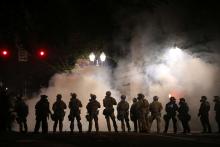
“As a community, we will resist such unconstitutional action by any morally rooted means we deem necessary,” said Rev. Dr. Otis Moss III. “We are a city of grit, grind and resistance, unafraid to speak truth to power.”

Civil rights leader and long-time member of the U.S. House of Representatives John Lewis died on Friday at age 80 after a battle with pancreatic cancer.
The death of a civil rights icon, people-pleasing during a pandemic, the impact of recent Supreme Court rulings, and more.

“We know that the more places where a young trans person can show up in the world as their whole self, the better,” said Hartke. “So why not make church one of those places? Can we imagine a world where the church is the most supportive place in a trans person's life, rather than the place they fear the most?”
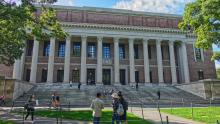
The universities argued the measure was unlawful and would adversely affect their academic institutions.
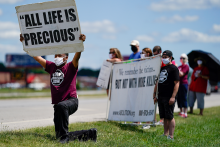
On July 14 the federal government executed Daniel Lewis Lee — the first federal execution in 17 years.
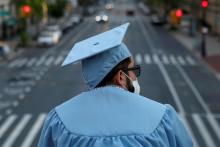
Against the backdrop of the Trump administration’s recent moves to restrict foreign work visas and suspend migration along the Mexican and Canadian borders, many are calling ICE’s order “xenophobic” and another example of the administration’s attempt to exclude non-U.S. citizens.
Parenting in a pandemic, Islam's anti-racist message, the price of white evangeical patriarchy, and more.
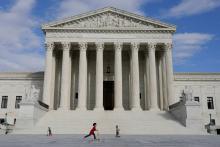
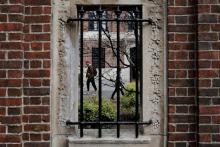
The guidance does not affect international students taking in-person classes. It also does not affect F-1 students taking a partial online course-load as long as some of their classes are conducted in-person. M-1 vocational program students and F-1 English language training program students will not be allowed to take any classes online.
Dominican nuns fighting climate change, Frederick Douglass on monuments, voting rights, and more.

Through their digital platforms, Beloved Arise is working to counter that message, telling youth from New York to Hawaii that they are loved “with no caveats, limitations, or exceptions.”